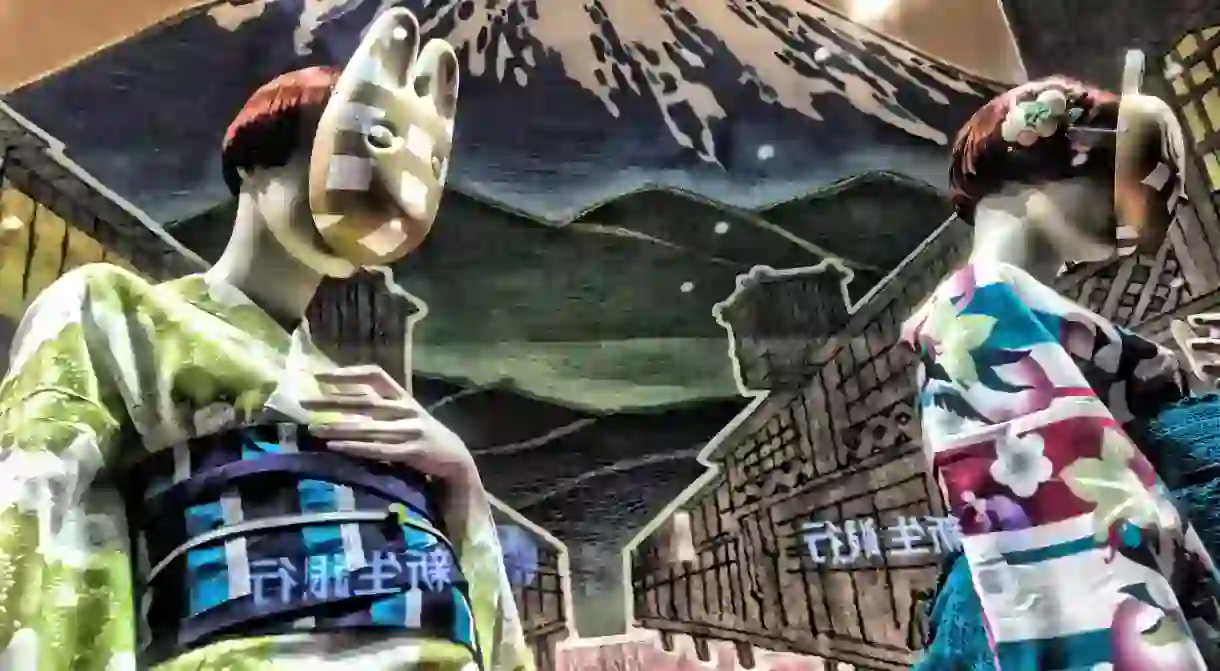The Best Department Stores to Shop at in Tokyo

Japan’s first department store, Mitsukoshi, has history stretching back to the 1600s, when its owners set up a permanent shop after selling kimonos door-to-door. Since then, several other one-stop shops have added their grand facades to the cityscape of Tokyo, often specialising in either menswear or womenswear. Some, such as Sogo and Isetan, have become so successful that they have extended the Japanese store experience overseas.
To explore the wonders of the country, from neon-lit skyscrapers to bamboo forests dotted with ancient temples, join Culture Trip’s curated 12-day trip to Japan.
Isetan
Shop, Store

Isetan is a successful department store chain and brand based in Shinjuku. The store also does well in Singapore and Malaysia, where Japanese-themed events are held for shoppers interested in the culture. In Shinjuku, a cluster of connected Isetan department store buildings cater to men’s fashion, beauty products and more. Isetan appeals to both the local and international crowd, and shoppers can find anything from kimono accessories and herbal teas to bridal gowns and children’s toys.
Mitsukoshi
Shop, Store

Mitsukoshi is recognised as the oldest department store in Japan. It’s also one of the largest in the nation. Eight years ago, the company merged with Isetan to form Isetan Mitsukoshi Holdings. The two chains remain distinct from one another, however, with Mitsukoshi being a little pricier and more upscale. The branch in Chuo-ku in central Tokyo is one of the most notable. Mitsukoshi also operates stores in North America, Europe and elsewhere in Asia.
Matsuya
Store

Matsuya, along with Mitsukoshi, is the oldest department store retailer in Japan. It carries a wide range of upmarket and luxury brands for the discerning shopper. Its flagship Tokyo store is in upmarket Ginza, one of the the most luxurious shopping areas in the world, which was built on a former swamp and is also home to the Wako department store, known for its watches and jewellery, porcelain, handbags and chocolate.
PARCO
Shop, Store

PARCO is a major department store chain with branches in most major Japanese cities. One of their main locations in Tokyo, Shibuya PARCO, reopened in 2019 after being renovated as part of wider investment in the Shibuya area, and its facade looks more like the front of an art gallery than a shop. PARCO tries to support local talent by encouraging pop-up shops. The company also uses a unique business model that combines retail with real estate services.
Marui
Building, Shop, Store

Marui is a major department store chain with branches in Tokyo and other large Japanese cities. Its iconic logo looks like the number “0101”, which reads Marui in Japanese, since the 0 resembles the Japanese symbol pronounced “maru”, meaning zero or circle. Marui targets a young, stylish crowd between the ages of 20 and 35.
Sogo / Seibu
Shop, Store

The Sogo and Seibu department stores are both subsidiaries of Seven & I Holdings Co., the company that owns the ubiquitous Ito-Yokado supermarkets and 7-Eleven convenience stores. You’ll find Seibu at big thoroughfares such as Shibuya Station, making it a convenient one-stop shop for the busy commuter, whereas many Sogo stores are on main shopping streets, making them more of a leisurely destination.
Tokyu Department Store
Shop, Store

Tokyu will be a familiar name to anyone who’s ever travelled to Tokyo. It’s also one of the best department stores Tokyo has to offer for local streetwear brands. As well as operating the Tokyu brand, including the flagship shop at Shibuya Station, the company also runs the ubiquitous Tokyu Hands multi-level hobby and DIY store – an Aladdin’s cave for crafters and home improvement fans.
Hankyu Department Store
Shop, Store

Hankyu has four main stores in Japan and two locations in Taiwan – Kaohsiung and Taipei. At Hankyu Men’s Tokyo in Ginza, you can find luxury and street fashion for men from local designers as well as those from around the world. Their main shops in Osaka and Fukuoka sell women’s clothing as well. Hankyu sometimes goes by the alternative name of Hanshin, since the umbrella company is Hankyu Hanshin Department Stores, Inc.













